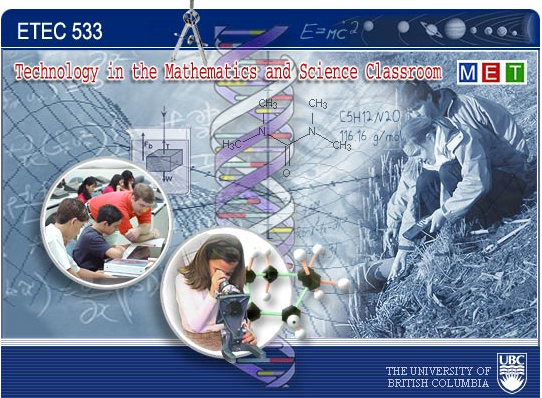The definition of technology that stood out for me is: “Jonassen (2000) thinks of how learning with technologies provide “cognitive affordances.” He says, “I do not believe that students learn from computers or teachers-which has been a traditional assumption of most schooling.” He goes on to suggest that, ” [S]tudents learn from thinking in meaningful ways. Thinking is engaged by activities, which can be fostered by computers or teachers.” He believes that technology can support meaning making by students and that this happens when students learn with rather than from technology. Jonassen draws the analogy to carpenters who cannot build houses without a proper set of tools, to students who cannot construct meaning without access to a set of “intellectual” tools to help them assemble and construct knowledge. Essentially, Mindtools is the name Jonassen has ascribed to those computer applications that require students to think in meaningful ways in order to use the application to represent what they know. Mindtools include digital tools that support knowledge construction, exploration, learning by doing, learning by conversing, and learning by reflecting, such as: databases, semantic networks such as concept mapping software, spreadsheets, modeling tools, microworlds, search engines, information visualization tools, multimedia publishing tools, and synchronous and asynchronous conversation environments.”
How to define “technology” today? I don’t think it has the same definition from 10-15 years ago. Jonassen here does the honor of demystifying what it is or what it could be. “Students learn from thinking in meaningful ways”, they experience life in authentic situations and represent their creative thinking from/with technology. Technology today is an expression of yourself, it is a meaningful part of your mind and it is connected to your everyday routine in multiple ways. As a strong connection with the being, technology has to be used included, embedded, infused in the learning process. It can’t be left alone. I believe that many of today’s learner are inclined to experience technology for learning as they express themselves through it. They present themselves, they talk about their experiences, they chat with their friends, they post ideas on everything and nothing. Technology is not necessarily them but isn’t it an extension of them. Technology used to be, a device, a machine or something built by man. Today, it is still created by men, but I think it is more vast and diversified to name it. Technology is an opportunity that offers multiple ways to design yourself and make your way in the world.
Here is a great little video, from Will Richardson (father, educator, author & blogger) on students learning. They are learning through peers, not waiting for learning to come to them, but searching for it. Technology does support the process a lot here.
Ideal pedagogical design of a technology-enhanced learning experience for math and/or science.
I think, probably, the ideal desing for a math/science learning experience would be through the constructivist learning approach. Learners build on what has been owned before and keep growing. From there, they use technology to support their learning with peers, friends, teachers. Technology is there to help them simplify the process and make the learning interesting. Ideas, reflexion, discussion, collaboration, cooperation, readings: these should all be part of the STEM learning and ideal pedagogical scenario of technology learning experience. I have read that learning would be more effective when there is engagement from the learner in the process of learning rather than being in a passive environment. Inquiry-based learning does open doors to STEM teachers. It is a student-centered community offering collaborative opportunities to solve real world problems. I believe the IBL is a great pedagogical design and offers multiple possibilities for STEM, supported by technology enhanced experiences.
Reference:
Jonassen, D. H. (2000). Computers as mindtools for schools, 2nd Ed. Upper Saddle River, NJ: Merrill/ Prentice Hall. Retrieved from Google Scholar: http://scholar.google.com/scholar?q=Jonassen+mindtools&ie=UTF-8&oe=UTF-8&hl=en&btnG=Search


Hello Dear,
How are you?
I want to publish the article at your website https://blogs.ubc.ca/
What is your post price?
Waiting for your reply
Thank You
Great insights on how technology shapes thinking rather than just delivering content! I love your point about learning with technology instead of from it. At AimGrip , we share this vision — empowering learners to think, create, and grow through meaningful tech use.